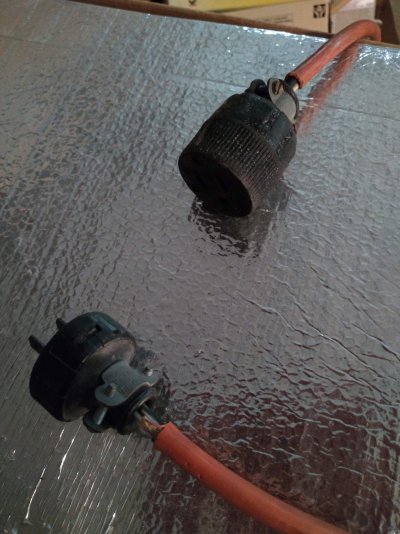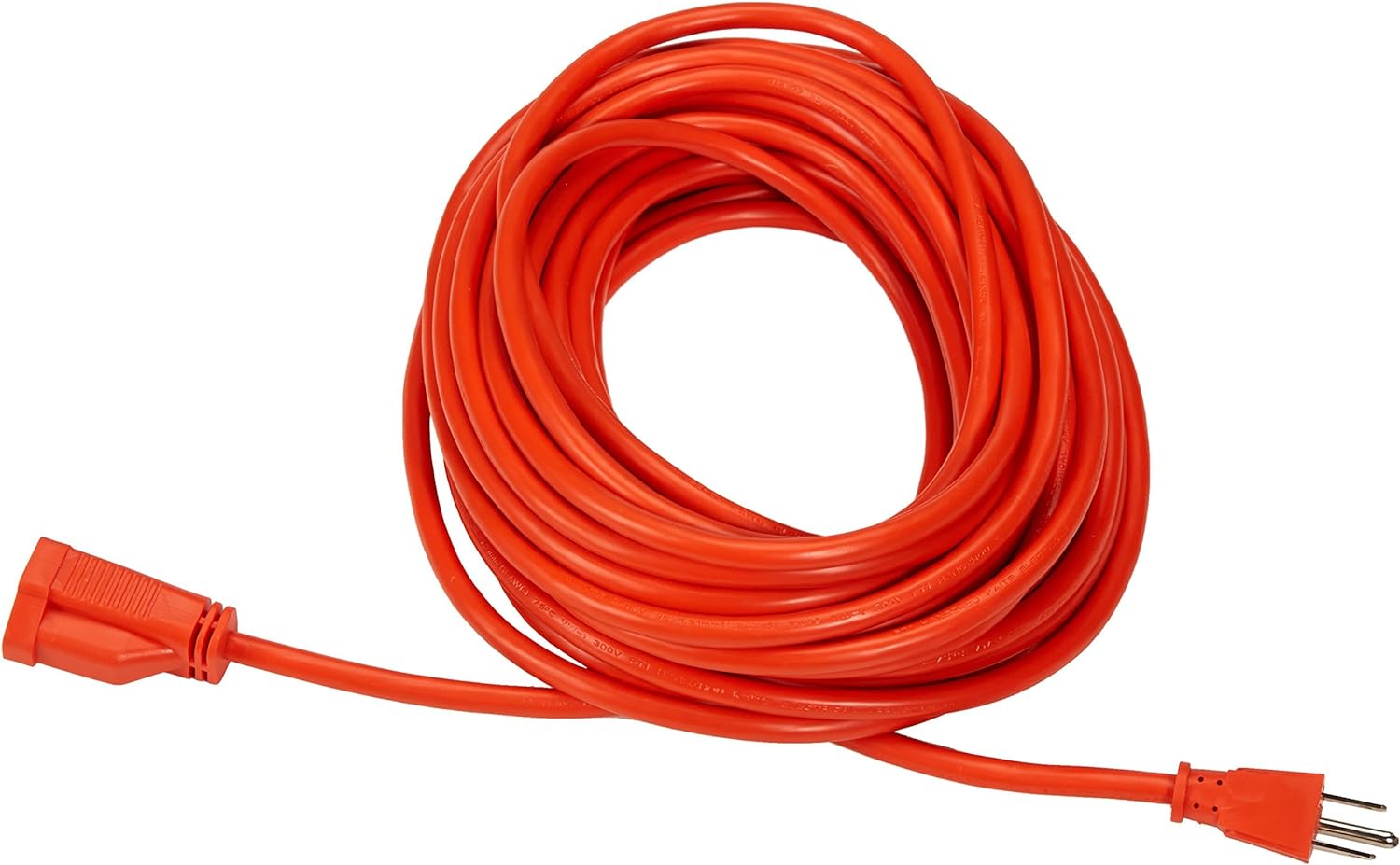RetiredAndLovingIt
Thinks s/he gets paid by the post
I'm cleaning out my garage, it's long overdue. I have an old orange extension cord, probably 50 feet long with a non grounded plug on it. Cord is marked 16/2 and I use it for my chainsaw. Common sense says it should be tossed in the trash ASAP and I should buy a new grounded better gauge one but my natural cheapness says it still works fine. Picture attached, what do you think?




